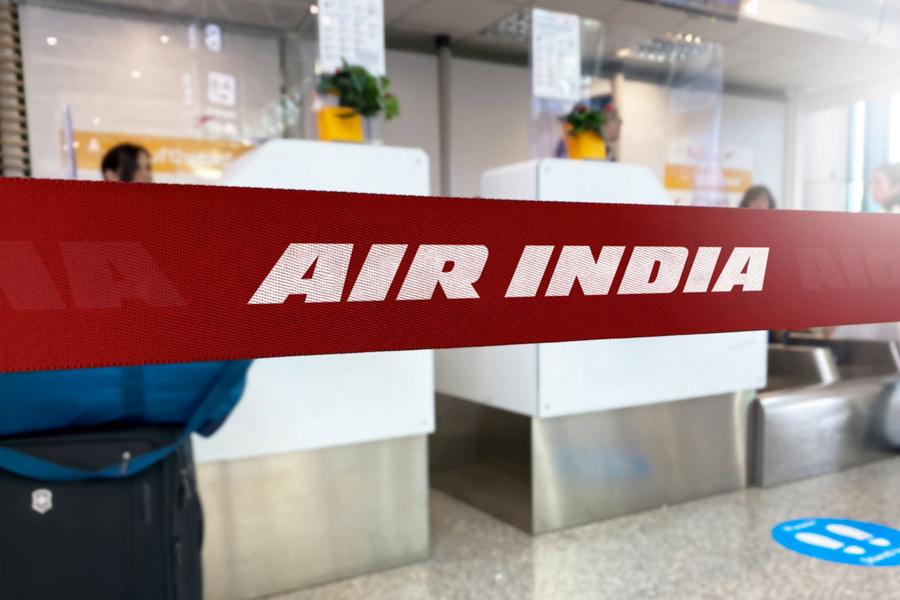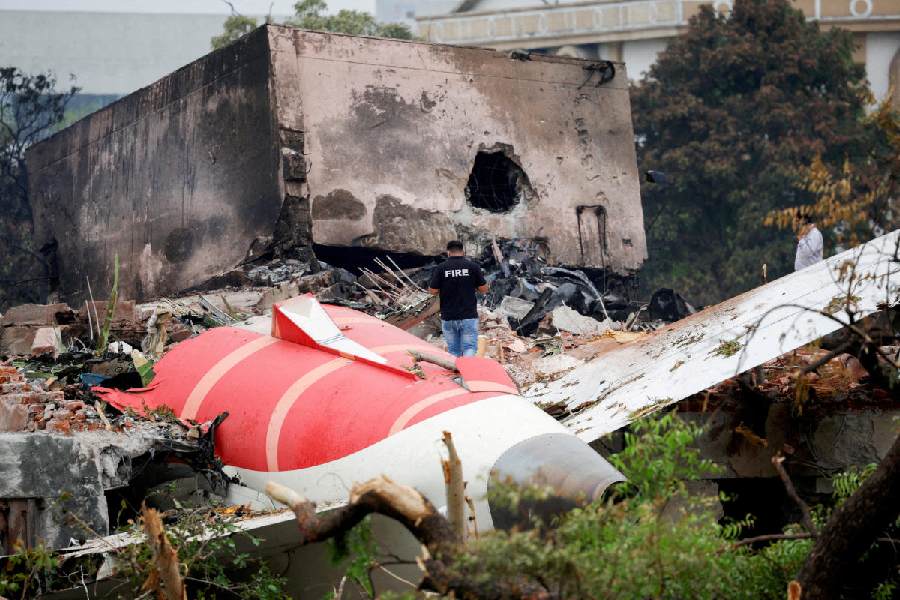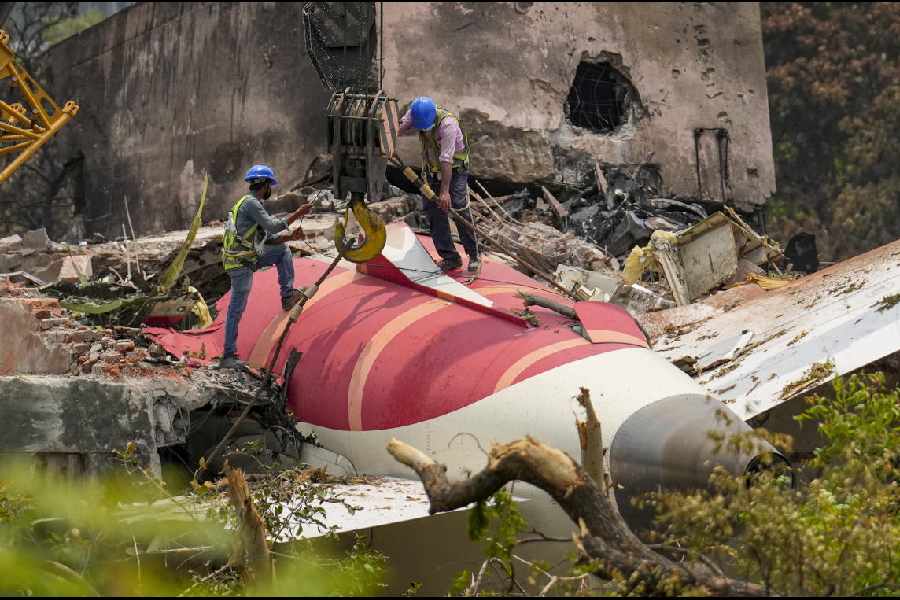Aircraft pilots in India have slammed as “unfounded character judgements” leaked US media reports on the Air India Flight 171 Ahmedabad-London flight that seem to point fingers at the captain manning the ill-fated aircraft.
“The crew of AI 171 made every possible effort — till their very last breath — to protect the passengers on board and minimise harm on the ground. They deserve respect, not unfounded character judgments,” the Air Line Pilots' Association - India (ALPA India) said in a statement on Thursday.
The association stressed that pilots are trained professionals who carry the responsibility of hundreds of lives with dedication and dignity.
The AI 171 crash on June 12, which killed 260 people after a Boeing 787-8 aircraft crashed into a building soon after takeoff from Ahmedabad, has triggered intense scrutiny.
ALPA India, a member of the International Federation of Air Line Pilots' Associations (IFALPA), has been demanding a transparent and unbiased investigation.
While India’s Aircraft Accident Investigation Bureau (AAIB) released its preliminary report on July 12, stating that the aircraft’s fuel switches were cut off within a second after takeoff, leading to cockpit confusion, speculation around the pilots’ action has also swirled.
“We reiterate our call for a fact-based and respectful discourse,” ALPA India said, urging against premature assumptions about the flight crew's role.
The Federation of Indian Pilots (FIP) has also raised red flags over the AAIB's preliminary findings. In a letter to the civil aviation ministry, the federation sought the inclusion of subject matter experts in the probe, citing fears of a potential oversight of technical failure pathways.
The FIP’s letter, per PTI, pointed out that the report “failed to sufficiently consider or acknowledge two plausible and previously documented technical scenarios, either of which could have triggered an automated shutdown of both engines”.
The FIP warned against “prematurely and indirectly” suggesting pilot error without conclusively eliminating known technical issues. “It is not the first time that systemic failures within Boeing aircraft have initially been attributed to pilot error or suicidal intent, only to be disproven by subsequent investigations,” the federation stated.
The FIP called for reassessment of potential roles played by Thrust Control Malfunction Accommodation (TCMA), Electronic Engine Controller (EEC), and Full Authority Digital Engine Control (FADEC) in the crash, using data from the Flight Data Recorder (FDR) and Cockpit Voice Recorder (CVR), alongside prior Boeing bulletins.
The federation acknowledged the timely release of the preliminary findings but argued that the initial report appears to infer or suggest pilot error “without presenting any conclusive evidence or exploring well-documented technical failure modes previously observed in similar aircraft.”












